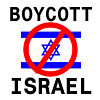
A Mosque for Drug Addiction Treatment

Many people might think that mosques are no place for drug addiction treatment, but those responsible for setting up a noteworthy drug treatment clinic in a mosque think it can be done – and are demonstrating the importance of religious leaders tackling social problems at the same time.
The clinic is a brainchild of Dr. Mohamad Hussain Habil, Program Director at the Centre for Addiction Sciences (UMCAS), based at the University of Malaya in Kuala Lumpur. Malaysia currently struggles with how to treat addiction, and is estimated to have 350,000 drug users.
Faced with the need to provide drug addiction treatment services for drug users living in nearby low-cost housing areas that were both inexpensive and accessible to the community, the UMCAS team hit upon the idea of using mosques as service delivery points.
Two years ago, the Ar-Rahman mosque located near the university became the testing ground for the UMCAS team to set up a clinic providing methadone, a legalized synthetic pain killer which is a substitute for morphine and heroine and has a high success rate in treating drug addiction.
Those accessing the clinic downstairs are also able to pray, read the Qur'an and seek spiritual counseling. Fulfilling individuals' spiritual needs has often been forgotten in treating drug addiction. UMCAS's program attempts to address this gap through an innovative and holistic approach which combines the two.
Social Services
| The UMCAS team is now planning to replicate the model in several additional mosques as well as churches and other houses of worship. Though the majority of drug users (as well as citizens in general) in Malaysia are Muslims, there is a need to extend the coverage of the program to non-Muslims. |
The idea of setting up HIV prevention or drug addiction treatment programs in places of worship is not new. In Thailand and Indonesia some mosques now provide social services, including drug treatment.
By virtue of being centers for community convergence, interaction and prayer located strategically in neighborhoods of diverse faiths, mosques, churches and temples have long been considered ideal locations for activities which require community outreach, particularly to those in need or who are socially marginalized. The formula has been applied to soup kitchens, homeless shelters, HIV treatment, sexual reproductive health services and other welfare services.
But in Malaysia, setting up a drug treatment center in a mosque was new. With the incarceration of thousands of drug users, the failure of many rehabilitation programs and countless millions of dollars spent over the years, Malaysia reached a watershed moment in 2005 when it decided that criminalization and punishment to prevent and rehabilitate drug users had failed. Treatment combined with a compassionate and humanistic approach replaced punishment as the cornerstone of the country's drug programme.
This shift has been fraught with challenges. The presence of drug users has been disconcerting to other worshippers at the mosque. The clinic also had to be set up quietly to manage any opposition to its presence and those accessing it.
The evidence gathered and experience gained over the past couple of years through this model has shown how important it is to recognize the benefits of investing time, effort and resources into engaging with religious leaders and authorities, particularly in communities where religion plays a dominant role in how individuals respond to social issues.
The treatment center staff involved religious leaders, government religious departments and various Muslim organizations that support the initiative and act as collaborative partners to ensure that users can access the clinic. Staff also asked these leaders to mobilize support from surrounding communities.
Encouraged, the UMCAS team is now planning to replicate the model in several additional mosques as well as churches and other houses of worship. Though the majority of drug users (as well as citizens in general) in Malaysia are Muslims, there is a need to extend the coverage of the program to non-Muslims.
Mosques, churches and temples can be a place to seek treatment and spiritual nourishment at the same time. There is still much that needs to be done, and many more individuals seeking treatment.
What this program demonstrates is the need for and importance of faith-based organizations actively engaging with issues like drug addiction. Religion can play a role in sustaining the progress of addiction treatment – and offering hope.





Hidayahnet Toolbar [no virus, adware, malware etc]
http://hidayahnet.ourtoolbar.com
--------------------------------------------------------------------------
**Boycott Israel**Support Palestine**
All views expressed herein belong to the individuals concerned and do not in any way reflect the official views of Hidayahnet unless sanctioned or approved otherwise.
If your mailbox clogged with mails from Hidayahnet, you may wish to get a daily digest of emails by logging-on to http://www.yahoogroups.com to change your mail delivery settings or email the moderators at hidayahnet-owner@yahoogroups.com with the title "change to daily digest".
--------------------------------------------------------------------------
Affiliates:
iPerintis - eGroup untuk Saintis dan Jurutera Muslim
http://groups.yahoo.com/group/iperintis/
Recommended sites:
Angkatan Belia Islam Malaysia : http://www.abim.org.my
Ikram Malaysia : http://www.ikram.org.my
Palestinkini Info : http://www.palestinkini.info
Partai Keadilan Sejahtera : http://pk-sejahtera.org
Fiqh Siber : http://al-ahkam.net/
The Muslim Brotherhood : http://ikhwanweb.com
Hidayahnet website : http://hidayahnet.multiply.com/
No comments:
Post a Comment